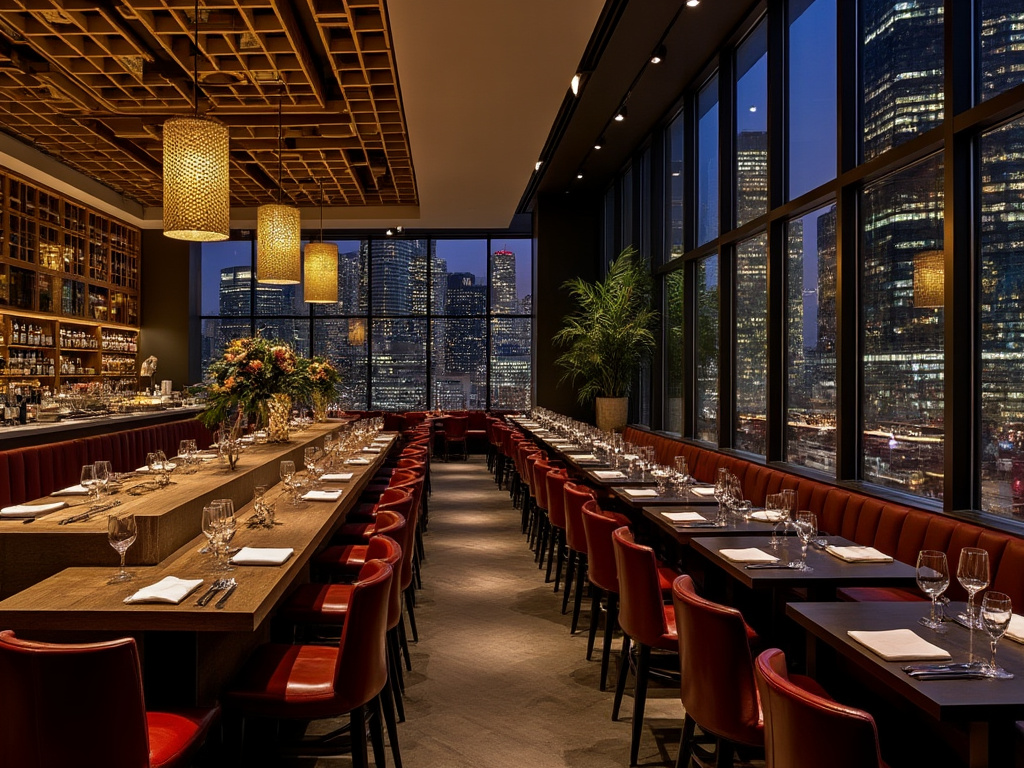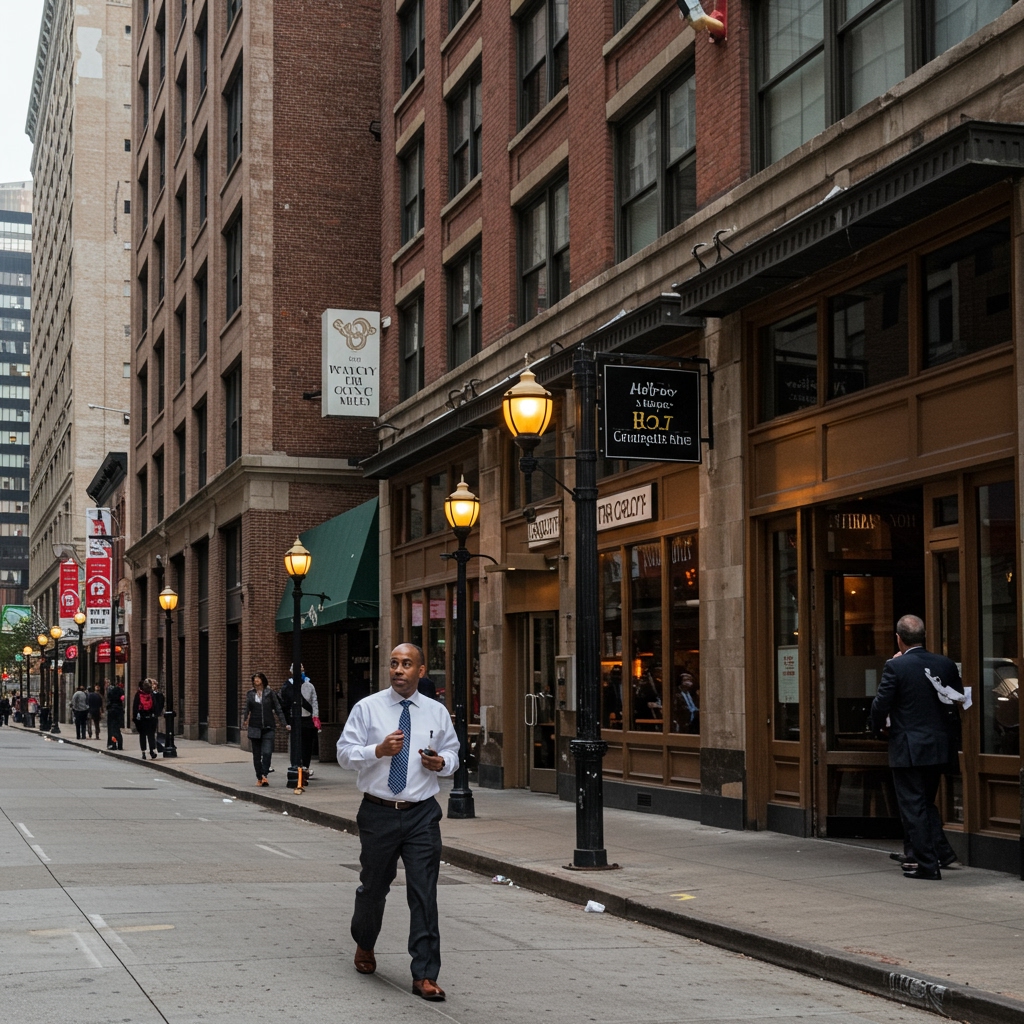Chicago’s vibrant culinary scene, a cornerstone of the city’s economy and cultural identity, is facing a significant challenge as the City Council considers a proposal that could drastically alter the financial landscape for many establishments. A controversial ordinance, introduced by Alderman Sofia Ramirez, seeks to implement a substantial increase in fees associated with outdoor dining permits across Chicago. This measure has quickly ignited a fierce debate between City Hall and the local restaurant industry, highlighting the ongoing tensions between municipal revenue needs and the economic viability of small businesses still navigating a precarious post-pandemic recovery.
The proposed fee hike is not merely an incremental adjustment; reports indicate that for some locations, the increase could exceed 50%. The stated objective behind this aggressive financial measure is to boost municipal revenue by an estimated $5 million annually. According to proponents of the ordinance, these funds are specifically earmarked for critical public works improvements throughout the city, addressing infrastructure needs that benefit all Chicagoans.
Industry Opposition Mounts Against Fee Proposal
However, the proposal has met with immediate and strong opposition from key industry stakeholders. The Restaurant Association of Illinois (RAI) has emerged as a leading voice against the ordinance, arguing forcefully that the timing and magnitude of the fee increase could have devastating consequences. This sentiment is widely echoed by numerous small business owners across Chicago, many of whom rely heavily on outdoor dining during the warmer months to supplement their indoor capacity and overall revenue.
Critics contend that imposing such a significant financial burden now is particularly detrimental, given that many restaurants are still struggling to regain their footing following the severe economic disruptions caused by the COVID-19 pandemic. Establishments have faced persistent challenges, including rising food costs, increased labor expenses, supply chain issues, and lingering changes in consumer behavior. Adding a substantial increase in operating costs, such as permit fees, could push already fragile businesses to the brink.
Economic Recovery Concerns at the Forefront
The argument from the RAI and restaurant owners centers on the severe financial burden the proposed fees would create. Outdoor dining spaces, whether sidewalk cafes, patios, or seasonal street closures, represent a vital revenue stream that helped many businesses survive the pandemic’s restrictions and continues to be crucial for their ongoing recovery. These spaces require significant upfront investment and ongoing maintenance, and the permit fees are an unavoidable cost of operating them.
A fee increase of over 50% for some locations would translate into thousands of dollars in additional expenses annually for many restaurants. For small, independently owned establishments with thin profit margins, this unexpected cost could necessitate difficult choices, potentially leading to reduced staffing, higher menu prices passed onto consumers, or, in the most unfortunate scenarios, the closure of the outdoor dining area altogether, or even the business itself. The RAI emphasizes that instead of burdening businesses, the city should be focused on fostering an environment that supports growth and recovery.
The City’s Rationale and Funding Needs
From the perspective of the City Council and proponents like Alderman Ramirez, the fee increase is presented as a necessary step to generate much-needed revenue for essential city services. The estimated $5 million in additional funds specifically designated for public works improvements suggests a focus on infrastructure projects that benefit the entire community, potentially including street repairs, beautification efforts, or other public amenities.
Supporters of the ordinance might argue that the current outdoor dining fees have not been updated to reflect the true cost of managing and maintaining these spaces or the value they provide to businesses, particularly in prime locations. They may also point to the success and profitability of outdoor dining as a justification for businesses contributing more significantly to the city’s infrastructure needs.
The Road Ahead: Committee Hearing Scheduled
The debate over the outdoor dining fee hike is now moving through the official legislative process. A key committee hearing on the proposed ordinance is currently scheduled for March 25, 2025. This hearing will provide an important public forum for aldermen, city officials, restaurant owners, industry representatives, and concerned citizens to present their arguments, ask questions, and deliberate on the potential impacts of the proposal.
The outcome of the committee hearing will be crucial in determining the future of the ordinance. Should it pass the committee stage, it would then be eligible to move forward for a potential full City Council vote. The coming weeks are expected to see continued lobbying and advocacy efforts from both sides as stakeholders attempt to influence the decision-making process before the pivotal March 25th date.
Potential Impacts and the Future of Outdoor Dining
The ultimate impact of the proposed fee hike remains a subject of considerable concern within the restaurant community. Beyond the immediate financial strain, opponents worry about the potential long-term effects on Chicago’s urban landscape and dining culture. A significant increase in outdoor dining costs could disincentivize restaurants from offering al fresco options, diminishing the vibrant street life that contributes to the city’s appeal for both residents and tourists.
The outcome of the upcoming City Council deliberations will therefore have far-reaching implications, balancing the city’s need for revenue generation and infrastructure investment against the economic health and recovery prospects of a vital sector of its economy. All eyes will be on the committee hearing on March 25, 2025, as the debate over the future of Chicago’s outdoor dining fees intensifies.















